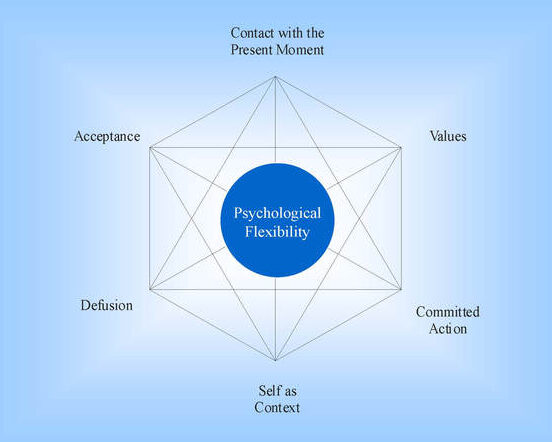JOIN THE WAITING LIST FOR JEANNE’S NEXT ACT CLASS
FIND AN ACT THERAPIST HERE
Dr. Jeanne Jakob integrates interventions from a variety of theoretical foundations. She has found Acceptance and Commitment Therapy (ACT) to provide the most generalizable framework for tackling various psychological challenges. As such, she regularly incorporates the ACT framework and ACT experiential exercises into therapy sessions.
ACT is non-pathologizing, transdiagnostic, and values-driven. A vibrant, evolving community of researchers and clinicians backs ACT. As of December 2022, more than 1,000 randomized controlled trials exist on ACT or its components.
Acceptance and Commitment Therapy (ACT) is a form of psychotherapy that emphasizes acceptance, mindfulness, and commitment to value-based actions. It was developed in the late 1980s by Steven C. Hayes, PhD, Kelly G. Wilson, PhD and Kirk Strosahl, PhD. ACT helps individuals develop psychological flexibility by learning to allow difficult thoughts and emotions to be present while committing to actions that align with their values and what are most effective given present circumstances.
At its core is the belief that suffering arises from the struggle to control or avoid unwanted thoughts, feelings, and sensations. Instead of trying to eliminate or suppress these experiences, ACT encourages individuals to accept them as natural and inevitable aspects of being human. ACT is based on Relational Frame Theory (RFT), which regards human language and cognition as relevant and influential components of human behavior and experience.
ACT is used to address a range of psychological issues, including anxiety, depression, substance abuse, chronic pain, and relationship problems. By fostering psychological flexibility, individuals can develop a more mindful, accepting, and values-based approach to life, improving well-being and greater fulfillment.
More reading on ACT, RFT, and CBS and Common Misunderstandings about ACT can be found on the ACBS website.
The above core ACT processes can be represented visually by the hexaflex below:

Sign Up!
Subscribe to Dr. Jeanne Jakob’s newsletter to receive email updates about Inside Out Psychology’s latest webinars, mindfulness, resource list updates, and publications!
